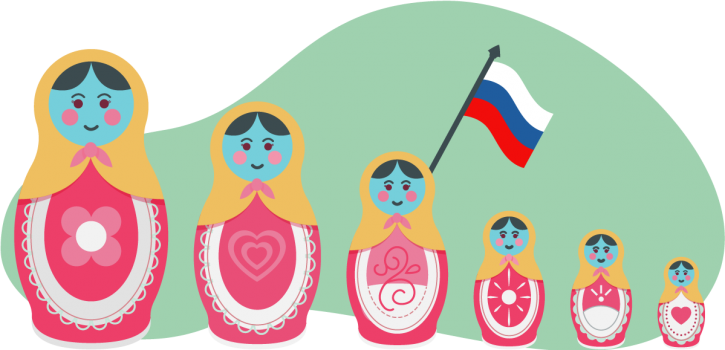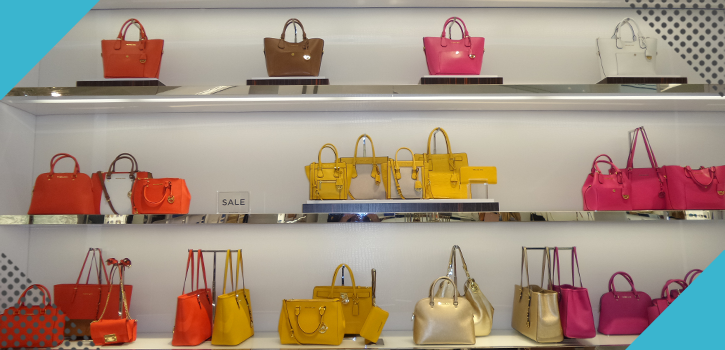Find the idea scary? No need: setting up in Russia is by no means impossible. Any entrepreneur can get to grips with the market: just stick to a few rules to make sure everything goes smoothly. Still not entirely convinced? Then read these six reasons to set up in Russia…
1. Sustained growth since 2017
This was the year the country came out of recession. In 2017, Russia recorded 18% growth, despite earlier trade and financial sanctions. With a population of 1469 million consumers, the eighth biggest oil reserve in the world, the biggest natural gas reserve and a qualified labour force, the Russian market looks increasingly attractive and full of potential.
Want to know more about expanding your eCommerce business globally? Discover our free eBook!
2. Price isn’t a barrier for Russian consumers
When making a purchase, Russian consumers look at brand and product quality ahead of price. In lower-income households, product lifetime is key. That said, although price is secondary, Russians do like a good bargain. Despite 57% of them looking at several shops to make sure they’re getting the best price, they always end up buying their favourite brands. They save very little money as they don’t trust the banking system and they spend most (80%) of what they earn.
3. Traditional trade remains in demand
Neither branded chains, nor wholesalers, nor distributors, nor direct sellers are in any danger of going downhill in Russia over the coming years. They represent 68% of the Russian food market. Small discounters are currently enjoying the quickest growth.
4. The e-commerce boom in Russia
Russia comes fourth in Europe in this area and is the country with the most internet users. Some even say that in the next few years Russia is set to become the biggest e-commerce market in Europe. It’s a real hotbed of talent (developers, data scientists, etc.), with developer salaries around 20 to 30% less than in France. However, start-ups sometimes have to deal with the immaturity of certain players in the sector. Kameleoon, a platform specialising in personalising the user experience created in 2009, has experienced this.
For Jean-Noël Rivasseau, Kameleoon founder and CTO: ‘Russia is three or four years behind France when it comes to e-commerce.’ Staff turnover can also be hard to manage (people stay in post for six months on average), and then there’s all the administration required. Jean-Noël explains that in France he has a standard contract for all prospects. In Russia, however, the legal services re-write them, pushing back the official signing date by two months. Despite this, there’s a key takeaway here: big accounts are accessible. ‘You can easily find the details of those high up in organisations and if your solution meets a need of theirs, it’s quite easy to secure a meeting.’ Having set up in Russia, Kameleoon aims to triple its 2017 Russian turnover by banking on this rapid e-commerce recovery!
Law 152
If you want to launch a digital product in Russia, you need to be aware of this law. It requires companies to store the personal data of Russian citizens on Russian soil. When checks first came in (the law has been in force since 1 September 2015), 30 sites were blocked, while Twitter and Facebook were required to regularise their situation.
5. French luxury is back
In 2016, sales of luxury goods grew by 42%. The same year, the luxury market was worth 35 billion euros. And another crazily high number: the collective wealth of the 200 richest Russians is 460 billion dollars. There’s no doubt about the country’s spending power! The design sector wins the prize for being the most developed market in Russia and has huge potential. France has always been seen as luxurious and refined, while people appreciate Western lifestyles and anything generally viewed as sophisticated.
Evangeline Bady, founder of EVA France DECO, set up in Moscow in 2011 and confirms that ‘Moscow is the most dynamic city for the interior design market.’ Her advice:
- Learn Russian: ‘The people I speak to know very little French and English – sometimes none at all.’
- Seek support when creating your business: to save time, Evangeline asked two service companies to help with legal matters when creating her business and make sure immigration rules were obeyed.
6. Use digital tools to work on relationships
As well as Russians being receptive to brand communications on social networks like LinkedIn, Facebook and VKontakte (the Russian ‘Facebook’), there are various other digital tools that help entrepreneurs stay in touch with their customers. Evangeline explains that she often sends out email campaigns and newsletters to keep in touch with her database, although she doesn’t work regularly with all her contacts. Her suppliers also use electronic product catalogues that complement the paper catalogues customers are still highly attached to. In Russia, you need to work on relationships. If people don’t like a seller, then they won’t buy – no matter how high the product quality is. Before you attempt to sell anything, take some time to create a good vibe, get to know your customers and discuss things…
Things to remember:
- Respect hierarchies and contact the right people
- Formalise agreements and decisions using written contracts approved by a Russian lawyer
- Seek help from experts on every aspect of Russan law
- Go above and beyond the initial encounter as they can be difficult, yet Russians like it when foreigners take an interest in their culture!
- Follow the rules: get to meetings on time, arrive prepared, etc.
A word of advice for those looking to launch in Russia?
Forget all the clichés! Russia is a unique country with its own culture, past, history and customs, but it has enormous potential and offers entrepreneurs who make the effort to get to know it some fantastic opportunities.







